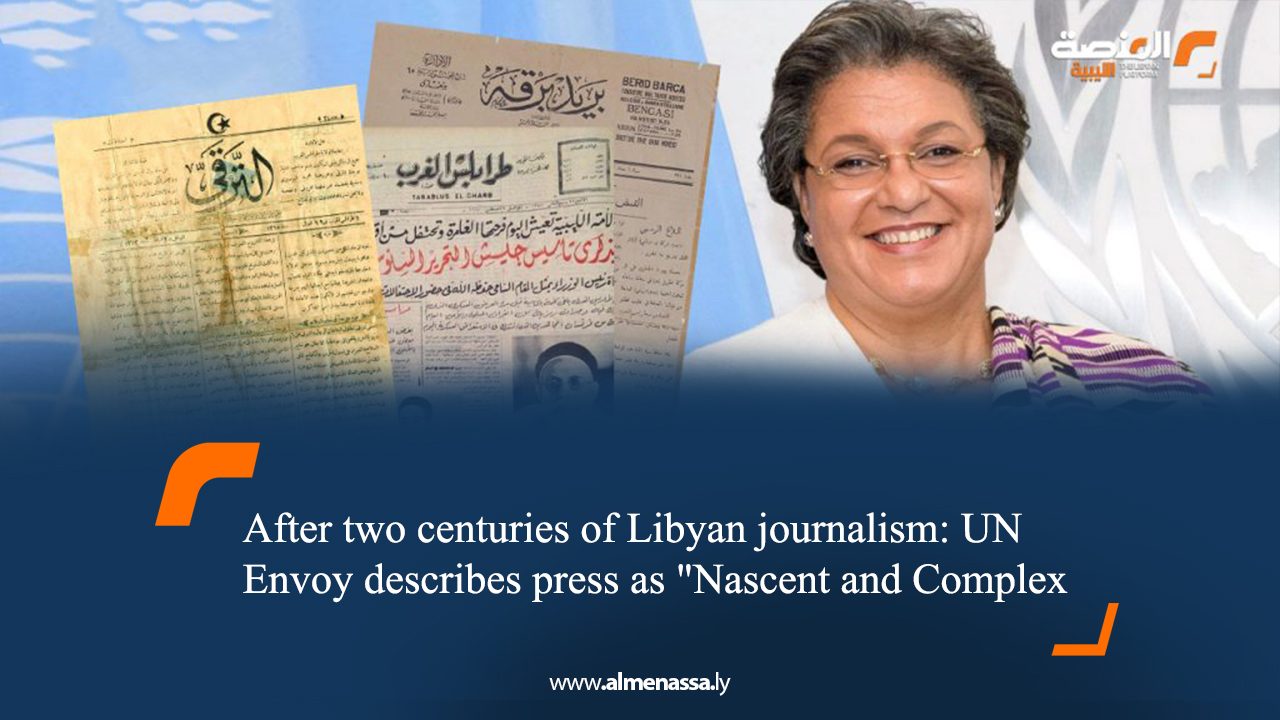The Special Representative of the Secretary-General (SRSG), Hannah Tetteh, has stated that “journalists play a vital and pivotal role in Libya’s stability, through their essential tasks of educating the public, correcting false and misleading narratives, and holding authority accountable to ensure transparency and oversight.”
The UN envoy added, according to the mission’s website, that “Libya’s media sector, in its current state, is described as relatively nascent and inherently complex. Libyan journalists operate within a highly politically polarised media environment, where the safety and security of those who openly oppose or criticise the authorities cannot always be guaranteed.”
Tetteh stressed in her statement that “in this critical context, it is essential for journalists to receive high-quality and continuous technical education and training. The “Basira” programme has been specifically designed to help meet this pressing need.”
However, this characterisation of Libyan journalism as “nascent” has been met with widespread criticism from a number of journalists and researchers specialising in the history of Libyan media. They argue that this description reflects a clear gap in understanding the evolution of Libyan journalism and its venerable historical role.
The UN envoy, it appears, lacks sufficient information about Libya’s history in general, and the trajectory of Libyan journalism in particular, given that the roots of journalism in Libya extend back to before 1827.
The first newspaper in Libya, “Al-Munaqqib al-Afriqi” (The African Explorer), was founded in 1827 by several European consuls in Tripoli and was published in French. This newspaper marks the beginning of a new and pivotal phase in the history of Libyan journalism, as it was the first printed media outlet to be issued in the country.
According to the historian Anthony Joseph Cacchia, in his book “Libya in the Second Ottoman Period,” there was journalistic activity in Libya dating back to before 1835, nearly two centuries ago. The Libyan researcher, Ahmed Omran Bin Salim also indicated that Libyan journalism began before 1866.
Journalist and researcher Samir Al-Obeidi affirms that Libyan journalism developed remarkably and conspicuously during the period from 1866 to 1969, influenced by the successive political transformations Libya experienced. During this period, Libya was governed by three main systems: the Ottoman era, followed by the Italian colonial period, then the British-French administration, leading up to the monarchical era.
Al-Obeidi added that Libyan journalism witnessed notable periods of flourishing and diversification, despite the difficult circumstances the country faced. It included newspapers published in both Italian and Arabic, and its editorial boards comprised an elite of Libyan intellectuals who diligently sought to convey information to citizens with accuracy and professionalism.
Al-Obeidi pointed out that the press played a crucial role as a fourth estate, accompanying the stages of the establishment and construction of the modern Libyan state, which makes it inaccurate or illogical to describe it as nascent or lacking deep professional roots.
Historically, the emergence of the printed press in Libya is relatively old compared to many other Arab countries. The first official newspaper, “Tripoli al-Gharb” (Tripoli of the West), was issued in 1866, consisting of two pages, one in Turkish and the other in Arabic.
Subsequently, a number of newspapers emerged until the first private Libyan newspaper, “Al-Taraqqi” (Progress), was published in Tripoli in June 1897, with Sheikh Mohammed Al-Bousiri serving as its editor-in-chief and director.
“Al-Taraqqi” continued to be published weekly for a full year before ceasing publication, only to reappear in 1908. However, journalism suffered a significant setback during the Italian occupation of the country in 1911, with some publications being permanently halted during Italy’s “Fascist” rule in 1922.
In the eastern region of Cyrenaica, the first newspaper appeared in Benghazi in 1921 under the name “Barqa Post,” issued by Muhammad al-Muhaishi. Later, “New Barqa,” a comprehensive daily political newspaper, was published in Benghazi in 1945. Therefore, Libyan journalism spans 198 years, nearly two centuries, and is considered one of the most venerable media experiences in North Africa preceded many countries in the region in this vital field.


